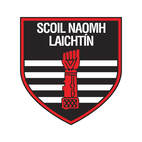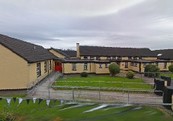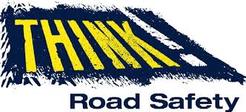General Information
Internet Safety
Webwise.ie is a great resource for schools and parents who are concerned about the safety of their children on the internet.
Please find below some information on discussing safety with your child.
Webwise Top Tips for Parents
Discover the Internet together
Agree with your child rules for Internet use in your home
Try to reach an agreement with your child on the guidelines which apply to Internet use in your household. Here are some tips to get started:
Encourage your child to be careful when disclosing personal information
Teach your child about evaluating information and being critically aware of information found online.
Don’t be too critical towards your child’s exploration of the Internet
Let your children show you what they like to do online
Remember that the positive aspects of the Internet outweigh the negatives.
Webwise Parent Talks
Webwise recently published free talks for schools/Guards wishing to host a parent talks. The talks are in powerpoint format, can be accessed for free and come with a script. There are presentations for parents of primary level children and second level students. Talks are designed to give parents and introduction to the topic of internet safety and addresses some of the concerns parents may have around their child's online safety. Please see link to access the talks: https://www.webwise.ie/internet-safety-talks-for-parents/
Webwise Parents
Webwise recommends schools direct parents to the webwise.ie/parents parents hub. This is the most comprehensive and up to date source of information and advice for parents.
Within the hub - Parents can find the following:
Please find below some information on discussing safety with your child.
Webwise Top Tips for Parents
Discover the Internet together
- Be the one to introduce your child to the internet. For both parent and child, it is an advantage to discover the internet together. Try to find websites that are exciting and fun so that together you achieve a positive attitude to internet exploration. This could make it easier to share both positive and negative experiences in the future.
Agree with your child rules for Internet use in your home
Try to reach an agreement with your child on the guidelines which apply to Internet use in your household. Here are some tips to get started:
- Discuss when and for how long it is acceptable for your child to use the Internet
- Agree how to treat personal information (name, address, telephone, e-mail)
- Discuss how to behave towards others when gaming, chatting, e-mailing or messaging
- Agree what type of sites and activities are OK or not OK in our family
- Follow the rules yourself! Or at least explain why the rules are different for adults.
Encourage your child to be careful when disclosing personal information
- A simple rule for younger children should be that the child should not give out their name, phone number or photo without your approval. Older children using social networking sites like Facebook should be encouraged to be selective about what personal information and photos they post to online spaces. Regardless of privacy settings, once material is online you can no longer control who sees it or how it is used.
- Talk about the risks associated with meeting online “friends” in person
- Adults should understand that the internet can be a positive meeting place for children, where they can get to know other young people and make new friends. However, for safety and to avoid unpleasant experiences, it is important that children do not meet strangers they have met online without being accompanied by an adult you trust. In any case, the child should always have their parents’ approval first. In addition, it is also a good idea to have a fail-safe plan in place such as calling them shortly after the meeting begins so that they can bail out if they feel uncomfortable.
Teach your child about evaluating information and being critically aware of information found online.
- Most children use the internet to improve and develop their knowledge in relation to schoolwork and personal interests. Children should be aware that not all information
- found online is correct, accurate or relevant. Show your child how to check information they find by comparing it to alternative sources on the same topic. Show them trusted sites they can use to compare information.
Don’t be too critical towards your child’s exploration of the Internet
- Children may come across adult material by accident on the web. Also, a child may intentionally search for such websites; remember that it is natural for children to be curious about off-limits material. Try to use this as an opening to discuss the content with them, and perhaps make rules for this kind of activity. Be realistic in your assessment of how your child uses the internet.
Let your children show you what they like to do online
- To be able to guide your child with regard to Internet use, it is important to understand how children use the Internet and know what they like to do online. Let your child show you which websites they like visiting and what they do there.
Remember that the positive aspects of the Internet outweigh the negatives.
- The Internet is an excellent educational and recreational resource for children. Encourage your child to make the most of it and explore the internet to its full potential.
Webwise Parent Talks
Webwise recently published free talks for schools/Guards wishing to host a parent talks. The talks are in powerpoint format, can be accessed for free and come with a script. There are presentations for parents of primary level children and second level students. Talks are designed to give parents and introduction to the topic of internet safety and addresses some of the concerns parents may have around their child's online safety. Please see link to access the talks: https://www.webwise.ie/internet-safety-talks-for-parents/
Webwise Parents
Webwise recommends schools direct parents to the webwise.ie/parents parents hub. This is the most comprehensive and up to date source of information and advice for parents.
Within the hub - Parents can find the following:
- Advice Videos - Our parenting experts offer advice on everything from talking to your child about sexting to modelling good behaviour.
- ‘Apps Explained’ - the latest apps and social networks children are using explained.
- ‘Advice for Parents’ - advice and support for parents on key issues such as making friends online and sharing personal information.
- ‘Talking Points’ - to facilitate parents open communication with their child around internet safety.
- ‘How to’ -provide support and step by step instructions on blocking, reporting, parental controls and more.
Opening and Closing TimesSchool commences promptly at 9.10am.
Finish time Rang 1 - 6: 2.50.p.m. Finish time Junior and Senior Infants: 1.50 p.m If your child needs to be collected early the specific times that collections are to be made is either 11 o'clock or 1 o'clock |
Entry and exitThe school yard opens at 8.55 with pupils supervised by the Principal and SNAs.
School Building opens at 9.10, except on wet or very cold days whereby pupils will be allowed directly to class and supervised inside until class starts at 9:10. Entry and exit through the side gate upon arrival/dismissal. This gate is locked at 9:15 and entry after this time is via the main door of the school. Separate arrangements are in place for children travelling on the school bus. |
Safe ParkingDrop Off Guidelines and information related to parking |
Complaints Procedure.
Information from the Department of Education and Skills in relation to complaints, click here.



